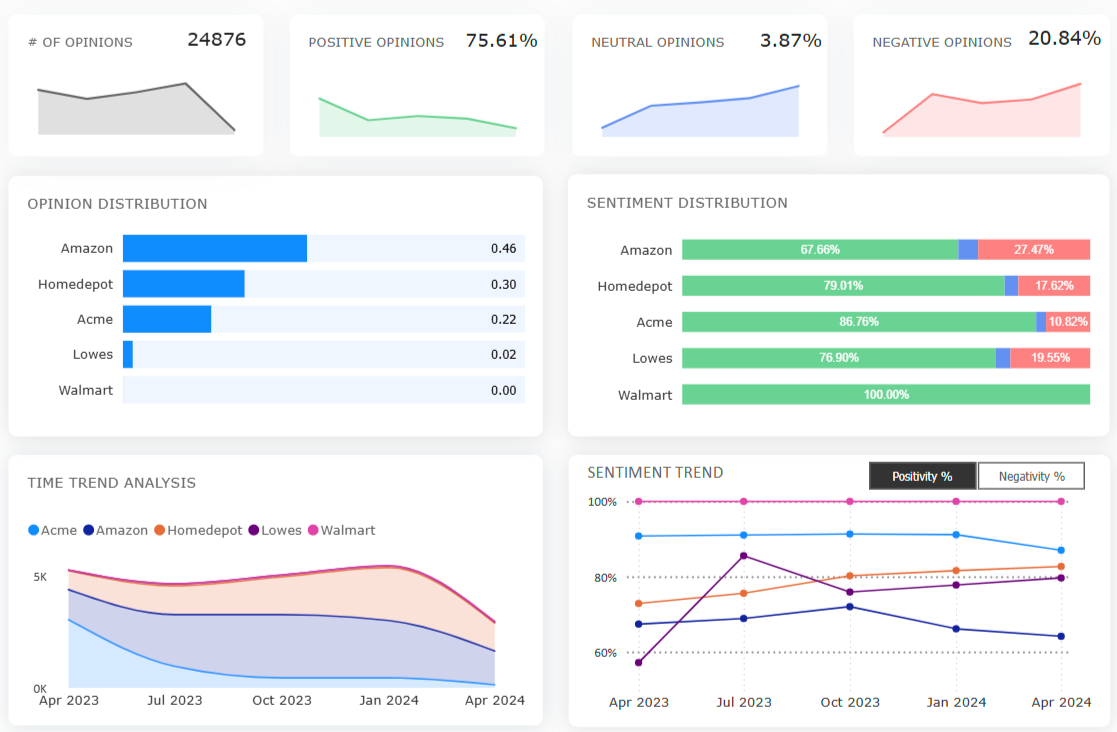🎉 Clootrack recognized by OpenAI for crossing 100 billion tokens in Voice of the Customer analytics →
Read the story
Reading time:

August 10, 2024
.webp)
Customer feedback catalyzes business growth.
But, if not used strategically- it breaks your market share and negatively impacts the overall customer experience.
Most organizations understand this. Yet, many struggle to collect sufficient customer feedback, severely limiting their ability to leverage advanced AI-customer experience analytics platforms like Clootrack to analyze reviews and refine their customer service and product offerings.
This blog will help you understand why your company needs quality customer feedback, the consequences of customer review shortfall, and strategic steps to transform customer feedback into actionable insights for delivering positive customer experience.

The internet and social platforms amplify every voice, turning any opinion about a product, service, or brand into a public broadcast—positive, negative, or somewhere in between.
Simultaneously, technology advancements have elevated consumer standards regarding what constitutes a satisfactory experience. When you blend this availability of data pool with the intrinsic human need to be acknowledged, you create what is known as the Feedback Economy.
At present, 42% of customer service professionals who leverage AI report that AI significantly aids in collecting and analyzing feedback from customers about their experiences.
“I am sure “Happiness” will surely bring in more value, savings and convenience to our loyal shoppers who have always supported us. This is our way of saying thank you.”- Chairman & MD, Lulu Group International, Yusuf Ali M.A.
Dubai-based Lulu Hypermarket harnesses customer feedback through its Happiness Rewards Program, which integrates insights from loyalty interactions and online shopping data. By leveraging this feedback, Lulu fine-tunes promotions and product recommendations to align with individual preferences, offering targeted rewards that elevate the shopping experience and customer delight.

Failing to collect ample customer feedback can have serious repercussions. Without it, you miss crucial insights that could inform your business strategy and improve customer loyalty. In fact, 58% of agents report that insufficient consumer data frequently leads to negative customer experiences.

Use concise, user-friendly surveys and in-app prompts that can be completed quickly. For instance, integrate single-question pop-ups within your app or website to capture immediate reactions and sentiments.
Offering multiple feedback avenues will capture a broader spectrum of customer voices. Utilize social media listening tools to gather unsolicited feedback from platforms like Twitter, Facebook, and Instagram. Additionally, implement email surveys, live chat feedback, in-store interactive customer support kiosks, and SMS surveys to ensure you reach customers through their preferred communication channels.
Augment traditional feedback methods with behavioral data analytics. Track customer interactions with your brand, products, or services to identify patterns and customer pain points that may not be explicitly mentioned in feedback. This data can reveal underlying issues and opportunities for improvement.
Tailor your feedback requests to the customer’s journey and experience. For example, follow up with a feedback survey after a customer makes a purchase or seeks customer support. Personalization will make your customers feel valued and increase the likelihood of response.
Demonstrate how customer feedback has driven positive changes in your company to motivate more customers to share their thoughts. Share success stories and testimonials that highlight how feedback led to tangible improvements. This transparency builds trust and encourages continued engagement.
Encourage feedback by offering rewards, discounts, or exclusive offers. Gamify the feedback process by creating challenges or competitions that reward the most insightful or frequent contributors. Incentives can significantly boost participation rates.
Create and nurture online communities or forums where customers can share their experiences and suggestions. Actively participate in these communities to show that their feedback is valued and acted upon. This approach not only collects feedback but also builds a loyal customer base.
Implement NPS surveys to gauge customer loyalty and satisfaction. Follow up with detractors to understand their pain points and promoters to identify what’s working well. NPS can provide a quick, high-level view of customer sentiment and highlight areas for deeper exploration.
Use real-time feedback tools like AI chatbots and live chat to capture customer input during their interactions with your brand. These tools can ask contextual questions based on the customer's ongoing interaction or most recent experience, providing immediate and relevant insights.
Don’t just focus on quantitative data; pay attention to open-ended responses for richer insights. Use text analytics tools to process and understand themes and sentiments in qualitative feedback. This approach uncovers nuances that numbers alone might miss.
Insufficient customer feedback erodes your competitive edge and stifles growth. Act now to capture and utilize feedback effectively, turning it into a powerful driver of customer satisfaction and business success.
Don’t let a feedback shortfall be your downfall.
Read Next: Customer Feedback Analysis: Remember Every Complaint Ignored is 26 Customers Lost
Analyze customer reviews and automate market research with the fastest AI-powered customer intelligence tool.
